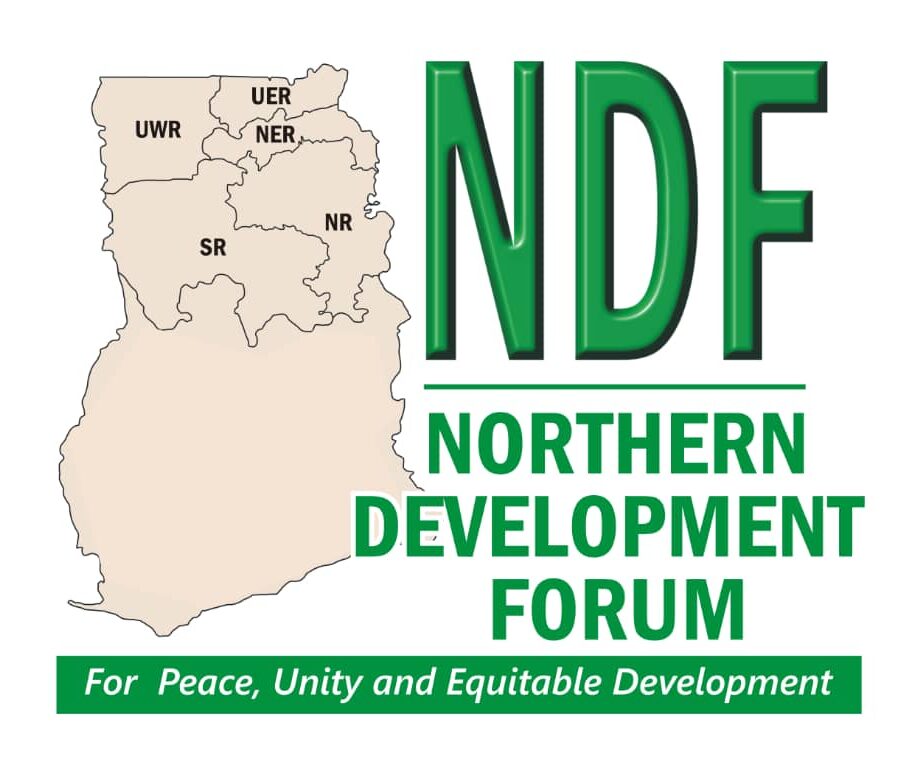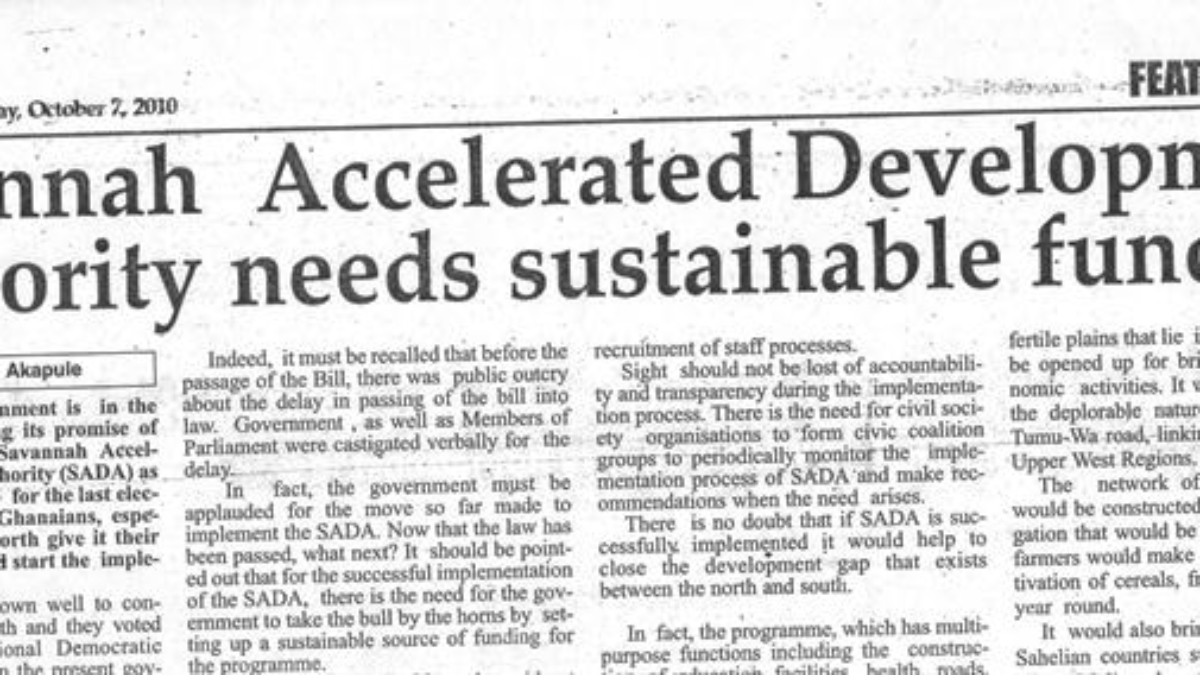DAILY GRAPHIC
THURSDAY 7 OCTOBER, 2010
SAVANNAH ACCELERATED DEVELOPMENT AUTHORITY NEEDS SUSTAINABLE FUNDING
STORY BY: Samuel Adadi Akapule
The current government is in the process of fulfilling its promise of implementing the Savannah Accelerated Development Authority (SADA) as captured in its manifesto for the last election campaign, that if Ghanaians, especially those from the north it their mandate to rule, it will start the implementation of SADA.
The message went down well to convince people of the north and they voted massively for the National Democratic Congress (NDC) to form the present government.
However, when the government came into power and had not implemented the SADA, many people from the northern parts of the country were becoming impatient and disillusioned. Civil society organization such as SEND Ghana and the Integrated Social Development Center (ISODEC) emerged vigorously with advocacy reminding the government of its promise to implement SADA.
At one of such advocacy forums organized by SEND Ghana in Bulgatanga in the Upper East Region. Participants advocated strongly that it was time the Bill, which was before parliament was passed into law to facilitate the implementation process.
When parliament in August 2010 passed the Bill into law and received the president’s signature in September 2010, it attracted a lot of commendation from the people, especially those of northern descent. Bodies from the northern parts of the country including the Northern Development Forum (NDF) paid great tribute to the government for the passage of the law.
Indeed, it must be recalled that before the passage of the Bill, there was public outcry about the delay in passing of the bill into law. Governments, as well as Members of Parliament were castigated verbally for the delay.
In fact, the government must be applauded for the move so far made to implement the SADA. Now that the law has been passed, what next? It should be pointed out that for the successful implementation of the SADA, there is the need for the government to take the bull by the horn by setting a sustainable source of funding for the programme.
It must be emphasized here that without a sustainable funding component, implementation of SADA would stall and this would have dire consequences on the NDC during Election 2012.
The funding should be donor driving else it will defeat the purpose of establishing SADA. At a forum a forum organized inn Bolgatanga by SEND Ghana; participants stressed the need for the government to set up a special tax system to attract sustainable funding for the implementation process.
It is very crucial for the government to consider the views expressed by the participants at the forum to ensure the successful implementation of SADA.
Other civil society organizations including NDF; ISODEC; Foundation for Grass Roots Initiatives in Africa have expressed similar views of establishing sustainable funding for the programme.
Again, the recruitment process into the programme should be based on competence, devoid of ethnicity, political and religious grounds. Dedication and honesty should also be important determination factors in the recruitment of staff processes.
Sight should not be lost of accountability and transparency during the implementation process. There is the need for civil society to organization to form civic coalition to periodically monitor the implementation processes of SADA and make recommendations when the need arises.
There is no doubt that if SADA is successfully implemented it will help to close the development gap that exist between the north and south.
In fact, the programme, which has multi-purpose functions including the construction of educational facilities, health, road; agriculture among other things, would in no doubt reduce poverty in the area and curb the current rural urban drift.
Let the government show more commitment to the implementation processes. A successful implementation of the programme would give it much credibility since it will go down well in the history books of Ghana for posterity to see that it was the only government that could turn out a feasible to bridge the north-south development gap.
The projects coverage areas in the three Northern Regions are the Northern, Upper East and Upper West and also the savannah areas of the Brong-Ahafo and parts of the Volta Region. It is expected that when the programme is given special attention, it would help to reduce poverty and facilitate adaptation to climatic changes and ecological transformation of northern Ghana.
It will create a circular road network that would connect the Upper West, Upper East and Northern Regions such that large fertile plains that lie in these regions, would be opened up for brisk farming and economic activities. It will help to improve the durable nature of the Navrongo-Tumu- Wa road, linking the Upper East and Upper West Regions.
The network of drainage canals that would be constructed to facilitate drip irrigation that would be owned by smallholder farmers would make it possible for the cultivation of cereals, fruits and vegetables all year round.
It would also bring strong linkage with Sahelian countries such as Burkina Faso, Niger, Mali and northern cote d’Ivoire and this would open up a true regional market for goods and services, with northern Ghana as a competitive supply and industrial hub. It must be pointed out that the attempt at bridging the north and south development gap has been a long standing dream of many post-independent government of Ghana. There had been previous attempt – Northern Region Rural Integrated Project (NORRIP); Irrigation Company of Upper Region (ICOUR); Land Conservation and Small-Holder Rehabilitation Project (LACOSREP) and Farmer’s Services Company (FASCOM) – but all this failed to make the desired impact because of mismanagement. It is the hope of this writer that SADA would not go the way of its predecessors.

